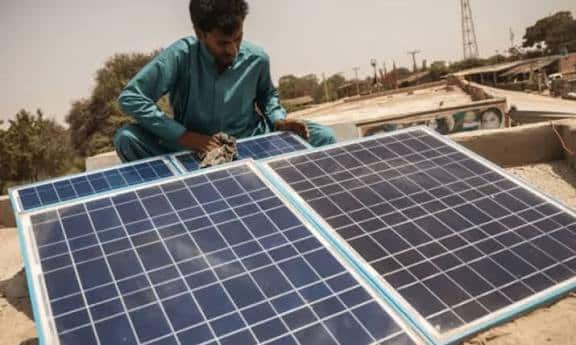With Pakistan rejecting earlier proposals to increase taxes on fertilizers and agricultural pesticides, the government and the International Monetary Fund (IMF) are now considering alternative measures targeting sectors such as solar panels and internet services to bolster revenue collection in case of fiscal shortfalls.
According to official sources, these proposed “emergency tax measures” are expected to be included in the IMF’s upcoming second review report, which will be made public following the Fund’s Executive Board approval of a $1 billion tranche for Pakistan. The new taxes would only be implemented if the government fails to meet its revenue targets for the first half of the fiscal year (July–December) or if expenditure control measures fall short of agreed limits.
The Federal Board of Revenue (FBR) has reportedly submitted a list of potential options to the IMF. Among them is a proposal to raise the General Sales Tax (GST) on imported solar panels from 10% to 18%, effective January 2026, should additional revenue become necessary. The government is also considering an increase in the withholding tax on internet services from the current 15% to between 18% and 20%.
FBR estimates suggest that imported solar panels could contribute an additional 25,000 to 30,000 megawatts of electricity generation capacity in the coming years. At present, rooftop solar installations produce around 6,000 megawatts — a figure expected to double soon as more consumers turn to solar energy to reduce dependence on the national grid.
However, officials have expressed concern that the rapid expansion of solar power is inadvertently increasing financial strain on the energy sector. As more consumers shift to off-grid solutions, capacity payments to power producers — payments guaranteed regardless of actual electricity consumption — continue to rise. These payments are projected to reach a staggering Rs1.7 trillion this fiscal year.
The IMF’s proposed measures highlight the delicate balancing act facing Pakistan’s economic managers — boosting revenue while minimizing the burden on essential sectors. If triggered, these tax adjustments could have wide-reaching implications for both consumers and industries, particularly those investing in renewable energy and digital infrastructure.


